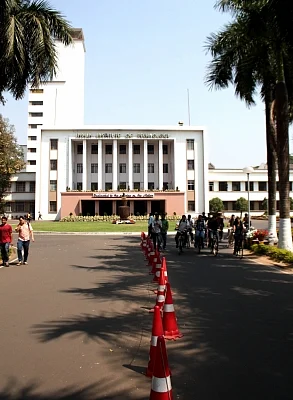Kolkata, Nov 30 (IANS) Amidst the pressing issue of global climate change, a study conducted by a group of scientists at IIT Kharagpur has come up with new data that they claim confirm "healing' of Antarctic Ozone hole, a statement said on Friday.
"A research team from the Centre of Oceans, Rivers, Atmosphere and Land Science (CORAL) at IIT Kharagpur has come up with new data confirming that the Antarctic Ozone Hole is on a healing path," said an IIT Khragpur statement.
According to the premier institute, the research is the first of its kind, providing detailed long-term (over four decades) analysis of Antarctic ozone loss saturation in terms of its occurrence and timing, using high-resolution ozonesondes - a balloon-borne instrument that measures concentration of ozone - and satellite measurements inside the vortex (a whirling mass of fluid or air) for the said period.
The researchers have collected data from 1979 to 2017. The saturation of loss at 12-21 km has significantly reduced over the period 2001-2017.
"We have observed over the past four decades the Ozone layer depletion peaked during winters each year except the warm winters of 1988 and 2002. However, our analysis shows a clear reduction in the frequency of occurrence of ozone loss saturation over the period 2001-2017 consistently throughout various datasets," Prof Jayanarayanan Kuttippurath said.
Pankaj Kumar, Prijitha J. Nair and P. C. Pandey were also the part IIT Kharagpur CORAL team.
Data were collected for various altitudes from autumn to spring, over the decades, from stations across Antarctica, including measurements from the Indian station Maitri, the statement said.
Also, the reduction of ozone loss saturation in the recent years ranged from 20 per cent to 60 per cent, across the data spread.
Explaining if it will affect the existing protocols and regulations for industrial emissions of ozone depleting substances, Kuttippurath said: "The recovery indicated in the loss saturation layer, robustly suggests that the Montreal Protocol has definitely saved the ozone layer and climate of the Southern Hemisphere".
The Montreal Protocol is an international treaty to protect the ozone layer.
He further said that since there are already significant changes in the southern hemispheric climate owing to the Antarctic ozone loss, the recovery from loss saturation is very likely to affect that.
"The ozone recovery process is very slow and it will take a few decades to get back to the pre-ozone hole levels. However, the emergence of ozone recovery is very clear even at altitudes where the near-complete ozone loss occurs," said P.C. Pandey.
--IANS
bnd/ssp/prs
(This story was auto-published from a syndicated feed. No part of the story has been edited by The Quint.)
(At The Quint, we question everything. Play an active role in shaping our journalism by becoming a member today.)
